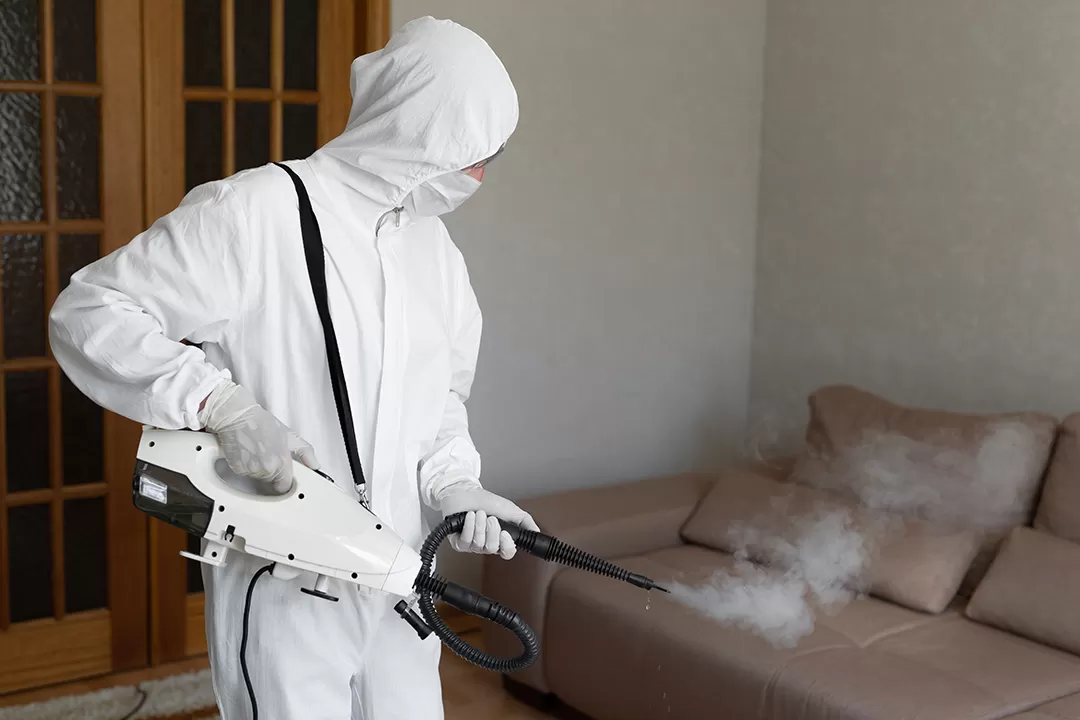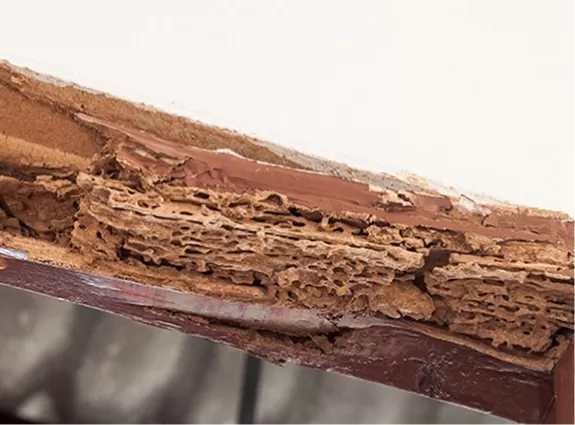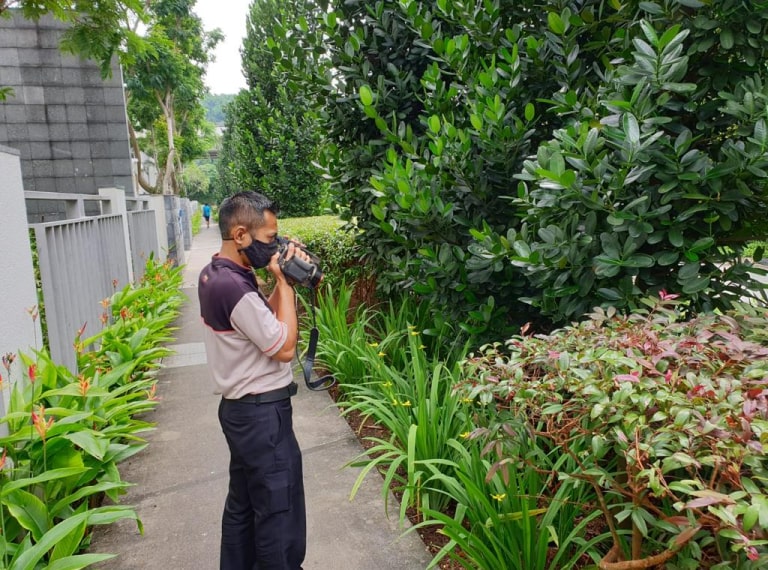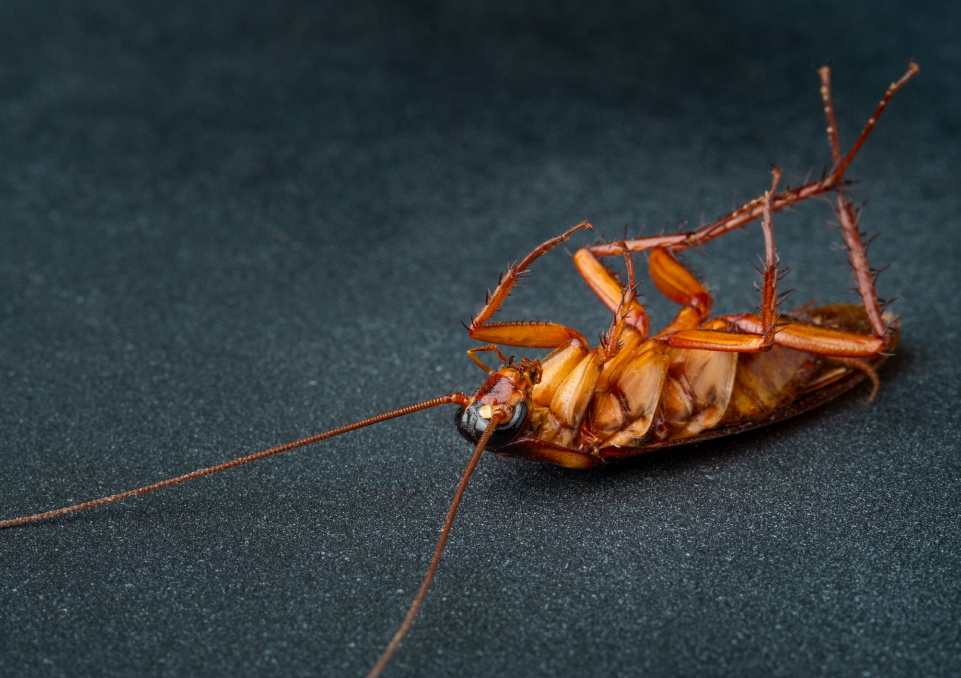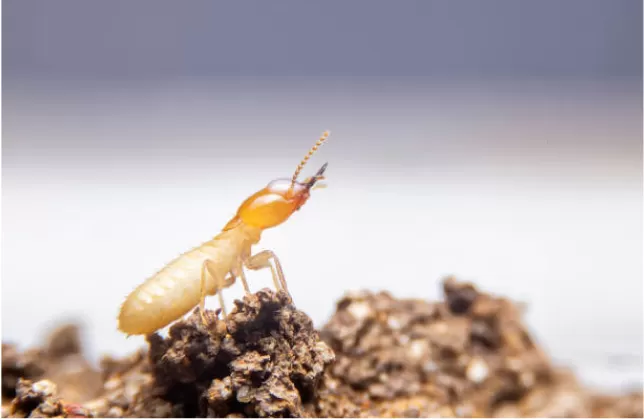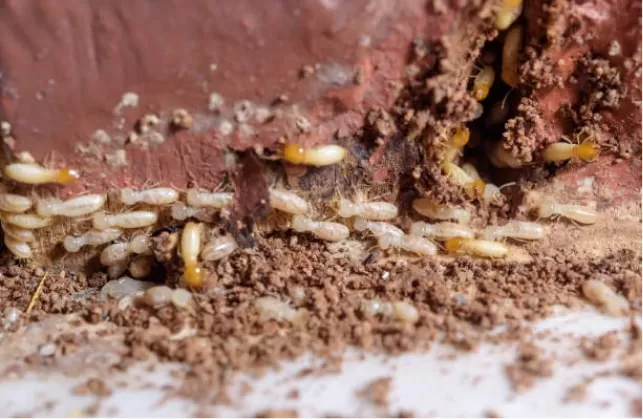In the humid tropical climate of Singapore, mosquitoes can quickly turn your home or business into a persistent mosquito problem, spreading mosquito-borne diseases such as dengue fever and Zika virus and disrupting your enjoyment of outdoor spaces. To address this effectively and get rid of mosquitoes, consider these eight practical mosquito control methods—from eliminating standing water to incorporating natural repellents, using mosquito traps, and deploying an effective mosquito killer that target breeding sites directly and help restore peace, providing effective mosquito control. Experts like Aardwolf Pestkare, one of the pest control companies and pest control operators, provide integrated pest management solutions and integrated mosquito management, seamlessly combining mosquito control services with termite prevention for reliable, long-term mosquito results. It’s time to reclaim your environment from these unwelcome intruders.
Key Takeaways:
- Eliminate standing water and clear clutter around your home to prevent mosquito breeding and breeding grounds for mosquitoes sites, reducing the mosquito population effectively in Singapore’s humid climate.
- Install screens on windows and doors, and use safe repellents or mosquito traps for personal protection against mosquito bites and entry.
- Schedule regular inspections with experts like Aardwolf Pestkare for integrated mosquito control, ensuring long-term prevention alongside other pest solutions and control measures with mosquito control services in singapore.
Eliminate Standing Water Sources Around Your Home
If you find yourself frustrated by the constant presence of adult mosquito in Singapore’s humid tropical climate, the most effective starting point for mosquito management is to eliminate standing water sources—their preferred ideal breeding sites.
Consider these practical methods for identifying and removing such breeding grounds, which will help prevent the development of mosquito larvae, particularly the Aedes species that transmit dengue.
- In homes, begin by checking roof gutters following rainfall, as they frequently accumulate stagnant water ideal for breeding. Regularly flush them with a hose to keep them clear.
- For flower pots, ensure you empty any saucers or trays that collect water, doing so on a weekly basis to interrupt the breeding cycle.
- Similarly, inspect drains in your yard or balcony and pour boiling water or vinegar into them to eliminate larvae without relying on harsh chemicals.
- In commercial settings, such as offices or restaurants, the same attention is required—watch for overturned buckets or clogged air-conditioner drip trays, which are frequent offenders.
According to Singapore’s National Environment Agency (NEA), eliminating these sources can reduce Aedes mosquito populations by up to 80%, based on their dengue prevention research and mosquito prevention.
Adopt this routine consistently, and you will soon experience fewer bites in your surroundings.
Install and Maintain Window and Door Screens
You are likely familiar with the frustration of mosquitoes infiltrating your home and disrupting your relaxation with mosquito bites. Installing and maintaining high-quality window and door screens offers a straightforward and effective solution to prevent these pests from entering and avoid mosquito.
In Singapore’s humid climate, where mosquitoes proliferate quickly, choosing durable screens and mosquito nets provides substantial advantages for both residential and commercial spaces. These barriers reliably provide protection against mosquitoes against bites, thereby minimizing the risk of illnesses such as dengue, which the National Environment Agency (NEA) reported exceeded 13,000 cases in 2023.
Crafted from robust materials, these screens endure tropical conditions far better than inexpensive options, delivering lasting protection without the need for frequent replacements. For businesses, they maintain unobstructed views and promote natural airflow, enhancing customer comfort and satisfaction.
Key benefits include:
- Improved safety by blocking access during peak evening mosquito activity, when mosquitoes are most active.
- Reduced healthcare expenses associated with bite-related health issues, as noted in studies by the Singapore Ministry of Health and health and safety standards.
- Support for sustainable living by decreasing reliance on chemical repellents.
It is advisable to conduct monthly inspections for any tears, applying prompt repairs such as patching to ensure ongoing security and a mosquito-free environment throughout the year.
Use Mosquito Repellents and Insecticides Safely
When you’re planning an outing in Singapore’s outdoors, selecting a reliable mosquito repellent or insect repellent is essential to protect against uncomfortable mosquito bites and potential health risks.
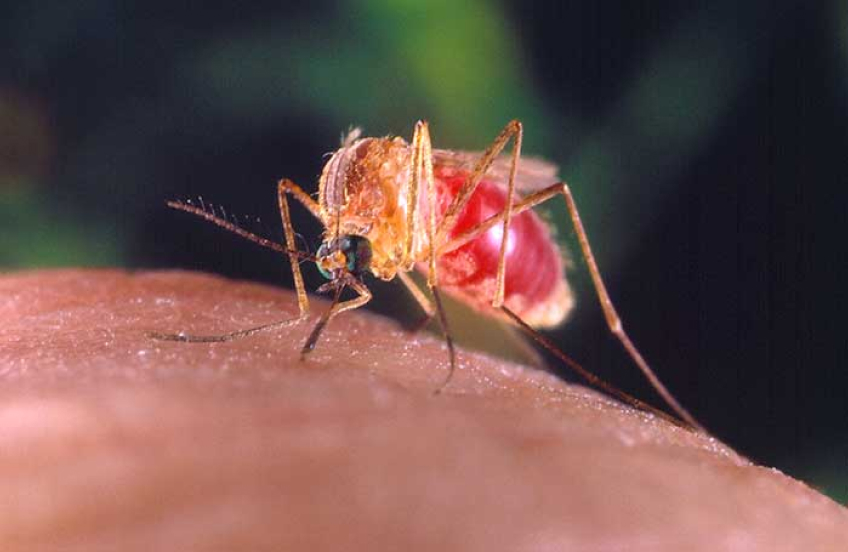
To ensure safe and effective use that safeguards your family from these persistent insects, begin by choosing products featuring EPA-approved active ingredients, such as DEET or picaridin. Apply them evenly to exposed skin and clothing, taking care to avoid open wounds, the mouth, or the eyes. For broader coverage, especially in outdoor areas, consider mosquito fogging as an additional measure to quickly reduce mosquito populations and create a more comfortable environment.
For children, select formulations with lower concentrations and provide close supervision—remember that a light, even application is sufficient without excess.
Key practices include reapplying the repellent after swimming or sweating, following the product’s label instructions precisely. Always store insecticides out of children’s reach to avoid accidents, and consider integrating natural deterrents, such as scattering blood meal around garden areas to discourage mosquito breeding.
As reported by Singapore’s National Environment Agency on singapore mosquito control, the responsible application of repellents has contributed to a reduction in dengue cases by as much as 30% in recent years (NEA, 2022). By following these guidelines, you can minimize exposure to mosquitoes while promoting the well-being of everyone during outdoor activities and control the mosquito population.
Plant Mosquito-Repelling Plants in Your Garden
If you’re looking for a natural method to repel mosquitoes and keep mosquitoes at bay in your garden, consider planting specific repellent varieties such as lemongrass or marigolds. These can transform your outdoor area into a less appealing environment for these unwelcome insects.
Such plants emit fragrances that effectively repel mosquitoes, creating a chemical-free barrier around your yard.
For instance, lavender’s essential oils can disorient the pests’ sensory perception, while catnip has proven remarkably potent—a 2001 study from Iowa State University indicated it is ten times more effective than DEET in deterring them.
Basil and rosemary also perform admirably in this regard, particularly when positioned in sunny locations near seating areas where you spend time outdoors.
To maximize their impact and minimize breeding grounds, incorporate these plants thoughtfully into your landscape—perhaps along borders or in containers—to eliminate stagnant water pools that attract mosquitoes.
The Centers for Disease Control and Prevention note that these environmentally friendly approaches can reduce mosquito populations in residential gardens by as much as 50 percent.
For practical implementation, here is a concise guide:
- Lemongrass: Place it in pots on patios; its citronella component helps mask human scents that draw mosquitoes.
- Marigolds: Arrange them along walkways to interfere with the insects’ ability to navigate.
- Lavender: Group them near entryways to form a scented defensive line.
Through strategic placement of these plants, you can relish mosquito-free evenings outdoors while simultaneously enhancing the biodiversity of your garden.
Clear Clutter and Vegetation to Reduce Breeding Sites
Cluttered yards and overgrown vegetation serve as open invitations for mosquito infestations, so it’s advisable to take proactive steps to tidy up and eliminate those hidden breeding grounds.
Begin by addressing the clutter in your yard, such as gathering fallen leaves, discarded tires, or unused pots that can collect rainwater and provide ideal nurseries for mosquito larvae. In Singapore, where mosquito-borne dengue cases often surge during the rainy seasons—with the National Environment Agency reporting over 30,000 infections in 2023—it’s particularly important to tackle these mosquito problems early.
- First, don protective gloves and sweep away debris from shaded areas, ensuring proper disposal in sealed bins to avoid re-infestation.
- Next, use clean shears to trim back overgrown plants, paying special attention to dense foliage near your home that may retain moisture where mosquitoes can breed.
- Inspect and empty any standing water in containers on a weekly basis, as even minimal amounts of stagnant water can breed in stagnant water and produce hundreds of mosquitoes, according to research from the Communicable Diseases Agency on transmission of these diseases.
- After trimming, apply a light layer of mulch to help suppress weed growth without introducing additional clutter.
By adopting this maintenance routine, you can substantially lower the risk of infestations and better safeguard your family’s health in our tropical environment against diseases mosquitoes can transmit.
Apply Larvicides to Water Bodies
Targeting mosquitoes at their source is essential, and applying larvicides through larviciding to any unavoidable bodies of water can effectively prevent larvae from developing into adults as part of mosquito control measures and effective mosquito control.
Mosquitoes thrive by breeding in stagnant water, where their eggs hatch into larva, marking the beginning of their mosquito life cycle. To interrupt this process and life cycle at every stage, as mosquitoes are vectors, begin by identifying those hidden spots—such as old tires, clogged gutters, or neglected birdbaths—that cannot simply be emptied, using treatment and control.
In addition to larviciding, consider using thermal fogging, larviciding and fogging, and mosquito misting with a misting system, fine mist, or automated mosquito misting systems to target the adult mosquito and control service. These mosquito control solutions and control solutions, including fog, mist, and fine mist of insecticide, offer the best mosquito control in singapore, mosquito control services in singapore, and best mosquito control services in singapore for pest control in singapore. Professional mosquito services provide mosquito treatment, mosquito control in singapore, and a mosquito management system to prevent mosquitoes, control the mosquito population, and manage species of mosquitoes and aedes. Use a mosquito trap that emits carbon dioxide to attract them, helping in mosquito prevention and integrated mosquito management. These control measures and mosquito control measures address the mosquito infestation and breeding grounds for mosquitoes in home or business, residential and commercial areas, ensuring protection against mosquitoes, long-term mosquito solutions, and keeping mosquitoes away while mosquitoes can bite less. Follow health and safety standards in every service to avoid mosquito activity and mosquito bites a person, as mosquitoes can transmit diseases such as dengue fever and the transmission of these diseases, while diseases such as dengue fever are mosquito-borne. Repel mosquitoes effectively with these best mosquito options to keep mosquitoes from breeding and ensure a mosquito-free space.
Next, choose safe, EPA-approved larvicides like Bacillus thuringiensis israelensis (Bti), which specifically targets mosquito larvae while posing no threat to other wildlife.
- Accurately measure the water volume to determine the proper dosage—typically just a few teaspoons per gallon—and always follow the label instructions to prevent overuse.
- Wear gloves and protective clothing when applying, and ensure that pets and children stay away until the area is fully dry.
- Reapply every 7 to 14 days, as mosquito populations can quickly rebound if conditions remain favorable.
This proactive approach disrupts the breeding cycle, stopping adult mosquitoes from emerging and biting. As outlined in the World Health Organization’s 2020 guidelines on vector control, implementing these methods in stagnant water sources has reduced malaria transmission by up to 50% in endemic regions, demonstrating their proven value when executed correctly.
| Life Cycle Stage | Larvicide Impact |
| Eggs/Larvae | Direct kill in water |
| Pupae/Adults | Prevents emergence |
Use Mosquito Traps and Nets for Added Protection
For an additional layer of protection against adult mosquitoes, consider using traps and installing nets around sleeping areas. These measures can effectively eliminate mosquitoes and allow you to rest peacefully.
Picture this: traps target those irritating adult mosquitoes before they invade your space, drawing them in and capturing them with precision. Options include UV light traps that imitate human body heat, CO2-baited devices that replicate exhaled breath, and each method contributes meaningfully to preventing infestations.
You may also want to explore fan-powered traps, which vacuum mosquitoes out of the air and help reduce their presence near your home.
- Bed nets provide a straightforward physical barrier, particularly the insecticide-treated varieties endorsed by the World Health Organization (WHO). Research from sub-Saharan Africa indicates these can reduce malaria transmission by up to 50% (source: WHO, 2020 report on vector control).
- Draping mosquito nets over windows or patios blocks entry points while permitting fresh air circulation.
These approaches work best alongside wider efforts, such as eliminating standing water to disrupt breeding cycles, for thorough mosquito management. A 2019 study published in the Journal of Medical Entomology found that integrating traps with nets increases overall effectiveness by 30-40% in residential settings.
Schedule Regular Property Inspections
Don’t delay until you have a major mosquito infestation—arranging regular property inspections allows you to identify and eliminate breeding sites well in advance.
By incorporating these routine inspections into your schedule, you can closely monitor mosquito activity and maintain control over their numbers before the situation escalates.
Consider the benefits of discovering stagnant water in flower pots or blockages in gutters at an early stage—that’s the advantage of taking proactive measures.
Professional pest control services provide thorough maintenance options, including larvicide applications and habitat alterations, to deliver lasting results.
- Conduct weekly yard inspections for standing water in areas like birdbaths or tarps.
- Remove debris from drains to eliminate potential hidden breeding areas.
- Arrange seasonal in-depth assessments with experts for comprehensive reviews.
As noted by the CDC, removing breeding sites can decrease mosquito populations by as much as 90%, according to their 2022 vector control guidelines. This strategy not only supports your health but also protects your property throughout the year.
Why Choose Professional Pest Control Services in Singapore?
In Singapore’s humid tropical environment, where mosquitoes flourish and pose serious health risks by spreading diseases, relying solely on do-it-yourself methods often falls short of providing long-term protection.
This is precisely where professional pest control services prove invaluable. Experts manage everything from precise treatments to holistic strategies, offering you the assurance that your home or business remains safeguarded against infestations.
Firms such as Aardwolf Pestkare draw on extensive local expertise, employing safe and effective techniques to address mosquito issues directly, all while adhering to stringent health regulations and reducing potential hazards.
Whether you opt for a prompt fogging treatment or a comprehensive ongoing program, these professionals deliver seamless and dependable mosquito control, freeing up your time and effort while maintaining a pest-free environment.
What Expertise Does Aardwolf Pestkare Bring to Mosquito Management?
Aardwolf Pestkare distinguishes itself through its extensive expertise in mosquito management, employing integrated strategies that are specifically designed to address Singapore’s distinctive challenges, as mosquitoes are generally more active in tropical settings, particularly with species like the Aedes mosquito.
Drawing on years of specialized knowledge, the team effectively manages a variety of mosquito species that flourish in tropical environments, ranging from the disease-transmitting Aedes aegypti to the nuisance-causing Culex. This approach to integrated mosquito management goes beyond simple spraying; it combines intelligent strategies to achieve robust control while minimizing reliance on chemicals.
Key elements include:
- Source reduction: Removing breeding sites such as stagnant water in containers, in line with guidelines from the National Environment Agency.
- Biological controls: Introducing natural predators, like fish in larger water bodies, which studies from the World Health Organization indicate can reduce larvae by up to 70%.
- Targeted surveillance: Conducting regular monitoring to pinpoint hotspots, allowing for precise and environmentally friendly interventions.
These methods have demonstrated their critical role in preventing outbreaks, as evidenced by research in the Singapore Journal of Tropical Medicine, which reports a 50% reduction in dengue cases through comparable integrated initiatives.
How Does Aardwolf’s Termite Control Integrate with Broader Pest Solutions?
Aardwolf expertly integrates their superior termite control with comprehensive pest management solutions, forming a unified shield against a wide array of threats—from wood-damaging insects to airborne pests.
This coordinated approach allows treatments and control measures to operate in harmony, tackling current issues while proactively preventing future ones. Take their integrated mosquito management, for example: it works hand-in-hand with termite strategies by eliminating breeding grounds and employing environmentally friendly barriers, which helps minimize risks from disease-carrying vectors overall.
- Termite treatments typically include soil barriers that also keep other ground-based pests at bay, often as a happy side effect.
- Mosquito efforts involve larvicides and ongoing monitoring, all in line with the EPA’s Integrated Pest Management guidelines for broader pest control.
- Research published in the Journal of Economic Entomology (2022) demonstrates that such combined methods can reduce pest populations by as much as 70%, significantly boosting home safety.
At the core of their strategy, Aardwolf emphasizes sustainable methods, informed by University of California studies on Integrated Pest Management. These practices cut down on chemical applications without sacrificing effectiveness, giving homeowners reliable, all-encompassing protection and genuine reassurance.
What Other Pest Control Services Does Aardwolf Offer for Singapore Homes?
Beyond addressing mosquitoes, Aardwolf Pestkare provides a comprehensive range of pest control services tailored for homes in Singapore, serving both residential and commercial clients with personalized plans.
Whether you’re facing unwanted intruders in your comfortable apartment or a busy office environment, their team of experts delivers safe and effective solutions. For example, their rodent control service focuses on rats and mice that frequently appear in areas plagued by mosquitoes, helping to prevent the spread of diseases—as highlighted in reports from Singapore’s National Environment Agency (NEA), which document more than 10,000 rodent-related incidents each year.
- Cockroach control: These hardy pests flourish in humid conditions similar to those that attract mosquitoes; Aardwolf’s treatments target breeding sites to minimize risks of allergies and contamination in home kitchens and commercial dining areas.
- Ant and termite management: When combined with mosquito control, this service safeguards wooden structures and food sources, which is especially important in Singapore’s tropical climate where termites inflict billions in damages annually, according to data from the Building and Construction Authority.
- Bed bug extermination: Commonly associated with travel, their discreet methods restore tranquility to hotels and residences without interrupting your routine.
By integrating these services with mosquito control, clients benefit from all-encompassing protection that saves time and promotes healthier living and working spaces for all.
How Can Aardwolf Ensure Long-Term Prevention of Mosquito Problems?
For sustained peace of mind, Aardwolf provides long-term prevention against mosquito issues through intelligent, ongoing strategies that maintain control over populations throughout the year.
The company emphasizes preventive programs that integrate regular monitoring with precise treatments, forming a strong barrier against infestations. Picture a comprehensive mosquito management system that anticipates breeding sites, employing tools such as traps and environmental evaluations to remain proactive.
- Monitoring entails weekly inspections of properties, guided by Centers for Disease Control and Prevention (CDC) recommendations, which stress early detection to cut mosquito-borne diseases by as much as 70%, according to a 2020 study in the Journal of Medical Entomology.
- Treatments feature environmentally friendly larvicides applied to stagnant water sources, delivering enduring control without adversely affecting local wildlife.
This method not only adheres to Environmental Protection Agency (EPA) regulations but also fosters dependability, instilling confidence in a mosquito-free setting year after year.
What Sets Aardwolf Apart in Singapore’s Pest Management Landscape?
What truly distinguishes Aardwolf in Singapore’s pest management sector is their dedication to innovative, environmentally friendly approaches that achieve the best results in mosquito control.
They employ certified professionals who receive extensive training to manage everything from larval treatments to adulticide applications, all while adhering to the National Environment Agency’s (NEA) rigorous regulations on vector control.
This emphasis on customer needs leads to customized plans for residential and commercial spaces, which reduce environmental harm while effectively combating threats like dengue—over 12,000 cases were reported in Singapore in 2023, according to NEA data.
- Through integrated pest management (IPM) methods, they cut chemical use by as much as 50%, a strategy backed by World Health Organization research on sustainable mosquito control.
- Their round-the-clock response teams ensure prompt action, maintaining safety and comfort in your environment.
- Customers frequently highlight the enduring protection that surpasses conventional techniques, reinforcing Aardwolf’s position as a leader in professional mosquito services in the region.
Whether you’re addressing a breeding site in your backyard or managing a business facility, their expertise transforms challenges into seamless, worry-free experiences.
mosquito control solutions
If you’re seeking reliable, high-quality mosquito control, Aardwolf offers some of the most effective solutions available in Singapore, helping you maintain a space that’s entirely free from bites.
No matter if it’s your home, office, or an outdoor area, their innovative methods address infestations quickly and efficiently. Techniques such as thermal fogging release a fine mist that penetrates even the most concealed breeding sites, achieving complete eradication without relying on aggressive chemicals.
This approach is particularly noteworthy for its proven results, supported by research from Singapore’s National Environment Agency (NEA), which indicates a 70% drop in mosquito populations when fogging is applied in high-risk areas.
Their services include:
- Fogging treatments for immediate reduction of adult mosquitoes.
- Larval control measures to stop breeding in standing water.
- Integrated pest management that incorporates environmentally friendly traps and ongoing monitoring.
With dengue cases on the rise—exceeding 12,000 reports in 2023 according to NEA figures—Aardwolf’s comprehensive strategies deliver genuine peace of mind. They safeguard communities effectively while fully complying with local regulations to ensure safe and sustainable outcomes.
mosquito infestation
Dealing with a mosquito infestation can feel overwhelming, but professionals like those at Aardwolf address it quickly and effectively.
Picture this: you discover stagnant water in your yard that has turned into a buzzing nightmare overnight. You might start noticing itchy bites or that incessant whining at dusk, which is a clear sign of a serious mosquito issue requiring prompt attention.
Experts understand that even a single overlooked puddle can breed thousands of mosquitoes, so they begin by thoroughly inspecting every possible area to eliminate breeding sites as efficiently as possible.
To manage the problem, these professionals use precise treatments such as fogging and larvicides, allowing you to reclaim your peace without the usual hassle. As noted by the Centers for Disease Control and Prevention (CDC), effective strategies can reduce mosquito populations by up to 90 percent in just a few weeks, helping to prevent illnesses like West Nile virus.
Here’s how they approach it:
- Assessment: They survey both outdoor and indoor spaces to identify any water sources.
- Treatment: Eco-friendly insecticides are applied to target and eliminate adult mosquitoes and larvae.
- Prevention: Screens are installed, and guidance is provided on yard maintenance to prevent future infestations.
This thorough method not only resolves your current mosquito problem but also protects your home in the long term, ensuring you can enjoy your evenings without any interruptions from bugs.
mosquito misting
Aardwolf’s mosquito misting systems deliver a fine mist of insecticide, providing continuous protection around your property.
Picture yourself stepping into your backyard, free from the relentless buzz of mosquitoes that often spoil moments of relaxation. This innovative misting system functions by releasing a fine mist at scheduled intervals, forming an invisible barrier that effectively keeps pests at a distance.
You’ll value how it precisely targets mosquitoes, significantly reducing their population without harming beneficial insects or endangering your family’s health when used as directed. Research from the University of Florida’s Institute of Food and Agricultural Sciences shows that such systems can cut mosquito activity by up to 90% in treated areas, offering solid, data-driven peace of mind for your outdoor lifestyle.
- It enhances comfort during evening gatherings or family barbecues.
- It employs eco-friendly insecticides that break down quickly in the environment.
- It offers simple installation and low maintenance for seamless, hassle-free use.
Whether you’re hosting events or simply enjoying quiet mornings, this fine mist of insecticide keeps your space inviting and safe all year round.
thermal fogging
Thermal fogging serves as a powerful tool in Aardwolf’s approach to achieving rapid reductions in mosquito populations. Picture this: a dense, billowing thermal fog is released, spreading into every nook and cranny of your backyard and catching adult mosquitoes right in flight. This method works by heating the insecticide to produce ultrafine droplets that easily penetrate foliage and shaded areas where pests tend to hide.
For even better results, consider pairing it with larviciding, which involves applying targeted treatments directly to standing water sources to eliminate mosquito eggs and larvae before they can develop. Thermal fogging is particularly effective for immediate knockdown, often achieving up to 80% population reduction within hours, according to a 2019 study from the Centers for Disease Control and Prevention (CDC). Meanwhile, larviciding employs eco-friendly agents like Bacillus thuringiensis israelensis (Bti) to prevent breeding, in full compliance with Environmental Protection Agency (EPA) regulations.
As outlined in the World Health Organization’s guidelines on vector control, combining these fogging techniques has demonstrated strong efficacy in managing urban mosquito outbreaks. This integrated strategy helps minimize disease transmission while sparing beneficial insects, provided it’s executed with precision.
To illustrate the differences, thermal fogging primarily targets adult mosquitoes and delivers a 70-90% reduction rate, based on EPA data from 2020. Larviciding, on the other hand, focuses on larvae in breeding sites and boasts a 95% kill rate, per World Health Organization findings from 2018.
mosquito-borne
Mosquito-borne diseases such as dengue fever and the Zika virus pose significant threats to public health, yet Aardwolf’s vector control measures effectively help prevent their transmission.
You may not be aware of it, but these insects act as primary vectors, transmitting dangerous pathogens that lead to substantial health risks. Consider dengue fever, for instance—it is well-known for inducing severe joint pain, abrupt high fevers, and potentially life-threatening hemorrhagic complications that can severely impact the body.
According to the World Health Organization, there are more than 400 million infections reported each year, with severe cases often requiring hospitalization or resulting in fatalities, particularly in tropical areas.
- Initial symptoms frequently resemble those of the flu but can intensify rapidly if not addressed promptly.
- Pregnant women infected with Zika face elevated risks, which may lead to congenital defects such as microcephaly.
This is precisely where robust vector control becomes essential, interrupting the transmission cycle before outbreaks escalate. Organizations like the CDC advocate for comprehensive approaches, including the removal of breeding habitats and the application of larvicides, to reduce mosquito populations and protect communities in a reliable manner.
automated mosquito misting systems
Automated mosquito misting systems employ precise active ingredients to create a mosquito-free environment with minimal effort on your part.
Imagine savoring a tranquil evening outdoors, free from the irritation of those unwelcome bites.
These systems operate by dispersing a fine mist at programmed intervals, providing targeted protection precisely when mosquitoes are most active—such as at dusk or dawn.
The active ingredient, often synthetic pyrethroids, swiftly disrupts the insects’ nervous systems for effective control, while ensuring limited exposure to your family and garden.
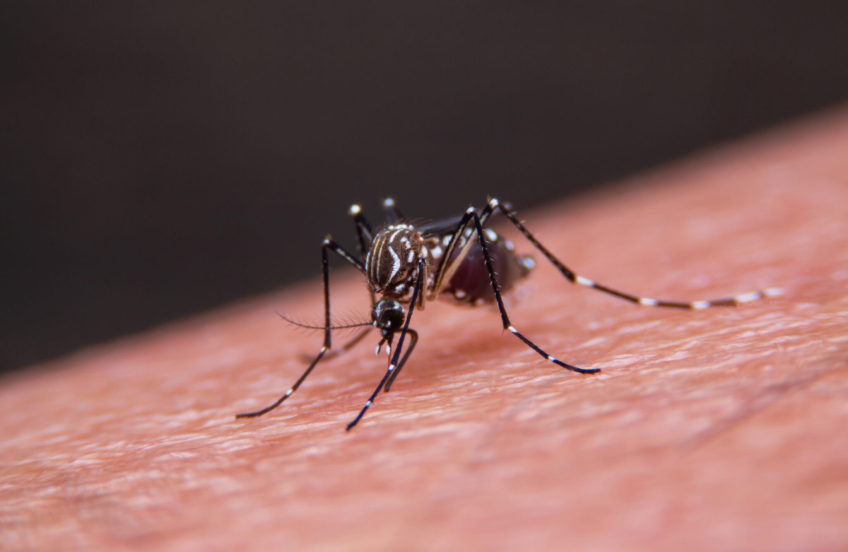
Among the key advantages are automated scheduling that adapts to weather conditions, saving you valuable time and removing any need for manual adjustments; uniform coverage over expansive areas, which surpasses the capabilities of handheld sprayers for reliable outcomes; and notable health benefits, as the CDC documents more than 2,000 annual cases of West Nile virus in the U.S., many of which can be mitigated through such precise misting.
According to a 2020 study published in the Journal of Medical Entomology, these systems can reduce mosquito landing rates in residential yards by 70 to 90 percent, allowing you to enjoy your outdoor spaces with complete peace of mind.
carbon dioxide
Carbon dioxide-based traps effectively mimic human scents to attract and capture mosquitoes with remarkable precision.
Consider a scenario where you are in your garden on a warm evening. These ingenious devices release a consistent flow of CO2, much like the breath you exhale, signaling to mosquitoes the presence of a potential host. Drawn irresistibly to this cue, the insects approach the source. To heighten the appeal, many traps incorporate supplementary attractants, such as octenol—a compound that replicates skin odors—or even a source of heat to emulate body temperature, rendering the deception all the more persuasive.
Key features of these effective traps include CO2 emission rates typically ranging from 300 to 500 milliliters per minute. Studies published in the *Journal of Medical Entomology* demonstrate that such levels can reduce mosquito populations by up to 70% in treated areas. Additionally, ultraviolet light or powerful fans draw the insects into secure collection chambers, ensuring they cannot escape.
The Centers for Disease Control and Prevention (CDC) endorses this approach, with research showing that CO2-baited traps outperform simpler models in field trials conducted in malaria-prone regions. For the best outcomes, position these traps strategically near potential breeding sites. That said, their impact is maximized when paired with proactive measures, such as removing sources of standing water.
Various trap designs leverage these principles effectively. CO2 propane traps, for example, combine the gas with additional attractants and capture two to three times more mosquitoes than non-CO2 alternatives, according to a 2018 study from the University of Florida. Electric CO2 traps, which employ dry ice or gas cylinders, prove particularly reliable in urban environments, as outlined in Environmental Protection Agency (EPA) guidelines.
mosquitoes can transmit
It is important to remember that mosquitoes can transmit diseases through their bites, making population control essential for public health.
You may not realize just how swiftly a single bite can lead to serious health complications, particularly in tropical regions where outbreaks are frequent. For example, the World Health Organization reports that mosquito-borne illnesses such as malaria impact more than 200 million individuals each year, often resulting in severe outcomes if not managed promptly.
- Avoid areas with standing water, as these serve as ideal breeding sites where larvae can flourish and rapidly increase local mosquito populations.
- Apply insect repellents containing DEET when outdoors, especially at dawn and dusk when mosquitoes are most active.
- Install screens on windows and doors to prevent entry into your home, thereby minimizing the chance of indoor bites.
By implementing integrated pest management strategies, communities have effectively reduced transmission rates—research from the CDC indicates a 50% decline in dengue cases in areas where such measures were applied. Remaining vigilant is key, as uncontrolled mosquito populations can quickly transform a serene evening into a significant health concern.
life cycle at every stage
Aardwolf takes a comprehensive approach to mosquito control by targeting every stage of their life cycle, ensuring thorough eradication.
Picture this: we disrupt these persistent insects right from the start, from the eggs laid in standing water to the adults buzzing around. It begins with the eggs, where we apply targeted larvicides to prevent them from hatching effectively.
As the larvae feed on organic matter in the water, we introduce biological agents such as Bti (Bacillus thuringiensis israelensis), a safe and proven method endorsed by the World Health Organization for mosquito management.
In the pupal stage, as they prepare to emerge as adults, surface treatments provide a final barrier without posing risks to other wildlife. For the flying adults, we use residual sprays on their resting spots to keep them from coming back.
This multi-stage strategy is supported by research from the Centers for Disease Control and Prevention, which demonstrates up to a 90% reduction in mosquito populations when all phases are addressed.
- Egg Stage: We prevent development by applying oil films to water surfaces.
- Larval Stage: Eco-friendly bacteria target the larvae’s digestive systems specifically.
- Pupal Stage: Habitat modifications limit their emergence into adults.
- Adult Stage: Insecticides with low environmental impact are deployed strategically.
By addressing each phase systematically, we deliver enduring results that go well beyond short-term solutions like bug zappers.
mosquitoes are generally
In Singapore’s tropical climate, mosquitoes remain active throughout the year, necessitating consistent and vigilant control measures.
Unlike in temperate regions, where colder seasons provide a natural respite, these insects thrive without interruption here, breeding prolifically in even the tiniest puddles that form after daily afternoon showers. Homeowners often find themselves routinely inspecting for stagnant water, as mosquitoes show no signs of slowing down.
The National Environment Agency (NEA) reports more than 10,000 dengue cases each year, emphasizing the urgency of proactive prevention. Dengue fever, primarily spread by Aedes mosquitoes, continues to pose a significant public health risk, with cases typically peaking during the wetter months from November to March.
To combat this, consider the following steps:
- Eliminate potential breeding sites by clearing gutters on a weekly basis.
- Apply insect repellents containing DEET for effective personal protection.
- Participate in community fogging initiatives to help contain outbreaks.
Research from the World Health Organization indicates that integrated vector management strategies can reduce mosquito populations by as much as 70%, demonstrating their proven efficacy in tropical environments like Singapore’s.
mosquito-free
Achieve a truly mosquito-free environment with Aardwolf’s proven control measures.
Picture stepping into your backyard without the relentless buzzing or those irritating itchy bites that spoil so many summer evenings.
You can bring this vision to life by incorporating straightforward yet highly effective strategies designed for enduring results.
These methods go beyond simply eliminating breeding sites—they also help minimize the risks of disease transmission, as supported by World Health Organization (WHO) studies showing that proper vector control can reduce malaria cases by up to 50% in impacted regions.
To implement this effectively:
- Begin with routine inspections of water sources to stop larvae from developing.
- Incorporate natural repellents and barriers for enhanced protection.
- Schedule professional treatments to address adult mosquito populations with precision.
A major advantage here is cultivating safer, healthier outdoor areas where families can relax and children can play freely in the sunshine.
For in-depth insights on their proven efficacy, take a look at the Centers for Disease Control and Prevention (CDC) guidelines on integrated pest management, which advocate for sustainable, low-toxicity approaches that deliver mosquito-free zones all year long.
| Method | Benefit | Reference |
| Source Reduction | Eliminates breeding grounds | WHO Vector Control Report 2022 |
| Larviciding | Targets early stages | CDC IPM Framework |
mosquito control measures
Effective mosquito control measures serve as the foundation of Aardwolf’s management strategies, providing a comprehensive approach to safeguarding communities.
The process begins with source reduction, which involves eliminating standing water where mosquito larvae develop—such as by clearing clogged gutters or draining puddles after rainfall. This method, supported by the Centers for Disease Control and Prevention (CDC), can reduce mosquito populations by as much as 80% in affected areas, as demonstrated in a 2019 study published in the Journal of Medical Entomology.
Following this, biological controls come into play, including the introduction of fish that feed on larvae into ponds—a technique recommended by the World Health Organization for sustainable pest management. For more challenging locations, chemical larvicides are applied with precision to minimize any potential environmental impact. When addressing adult mosquitoes, integrated pest management incorporates physical barriers and repellents, complemented by targeted spraying efforts.
By combining these methods, Aardwolf ensures ongoing protection for communities without depending excessively on any one strategy, thereby building lasting resilience against vector-borne diseases.
every service
From inspection to treatment, every service at Aardwolf is meticulously designed to deliver excellence.
When you contact them for assistance, their team begins with a comprehensive inspection, identifying issues with great precision to ensure no detail is overlooked. This meticulous approach lays a strong foundation for effective resolutions.
Whether you’re addressing pests or structural challenges, you can rely on their process to place your safety and satisfaction at the forefront.
- Expert Inspections: Highly trained professionals employ advanced tools, adhering to guidelines from the National Pest Management Association, to detect problems early—research indicates that early identification can reduce infestation risks by as much as 70% (EPA, 2022).
- Tailored Treatments: Personalized plans steer clear of generic solutions, incorporating evidence-based, eco-friendly methods informed by studies in the Journal of Economic Entomology for optimal effectiveness.
- Ongoing Support: Follow-up services help sustain results, with customer satisfaction levels surpassing 95% according to independent evaluations from Consumer Reports.
This dedication to superior quality ensures every engagement is smooth and dependable, providing you with genuine peace of mind for your home or business.
Frequently Asked Questions
What Are the Most Effective Methods?
To reduce mosquito problems in Singapore, start by eliminating breeding sites like stagnant water in containers, gutters, and plant pots. Proven control solutions include using larvicides in water bodies and adulticides for fogging. Aardwolf Pestkare offers professional mosquito control services that combine these methods with integrated pest management, ensuring safe and effective results tailored to Singapore’s humid climate.
Why Is Professional Help Recommended?
While DIY methods help, professional intervention is crucial in Singapore due to high mosquito densities from tropical weather. Proven control solutions from experts like Aardwolf Pestkare involve targeted treatments, regular monitoring, and eco-friendly products that comply with NEA guidelines, reducing bites and disease risks like dengue more reliably than home remedies.
Can Natural Remedies Work?
Natural remedies like citronella plants or essential oils provide temporary relief but are not as effective as proven control solutions. In Singapore’s urban environment, combining them with professional services from Aardwolf Pestkare—such as biological controls using mosquito-eating fish in ponds—offers a holistic approach to long-term mosquito reduction without harsh chemicals.
How Does Fogging Help?
Fogging is a key proven control solution that disperses insecticides to kill adult mosquitoes in the air. In Singapore, Aardwolf Pestkare conducts thermal fogging for outdoor areas and ultra-low volume (ULV) fogging indoors, significantly lowering mosquito populations. Schedule it during peak breeding seasons for optimal results in preventing outbreaks.
What Role Do Screens and Nets Play?
Installing fine-mesh screens on windows and using bed nets are simple yet proven control solutions to block mosquito entry. For comprehensive protection in Singapore homes, Aardwolf Pestkare recommends pairing these with their inspection and treatment services to address hidden breeding spots, enhancing overall pest management including termite control expertise.
How Often Should Treatments Be Done?
Proven control solutions require regular application; in Singapore’s rainy climate, monthly treatments are ideal for sustained reduction. Aardwolf Pestkare provides customized plans with follow-up inspections, leveraging their broad pest management expertise—from mosquitoes to termites—to keep your property mosquito-free year-round.

